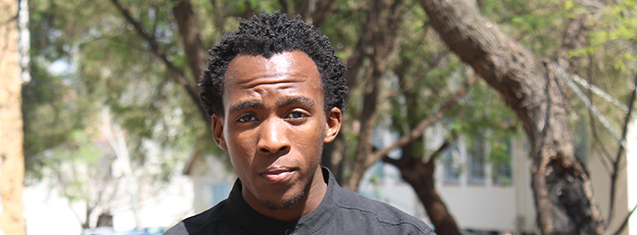
Siphokuhle Jama believes that the underprivileged are also destined to reign.
The inaugural ‘Dance and Musical Childhood Cancer Fundraising Day’, held on Saturday 26 September 2015 at the Free State Childhood Cancer (CHOC) Foundation, was “a huge success,” according to Siphokuhle Jama, the organiser.
Siphokuhle is a second-year BSc Agricultural Economics student at the University of the Free State (UFS), who has devoted his life to bettering the lives of the less fortunate. The 21-year-old self-proclaimed motivational speaker, entrepreneur, and budding author was inspired by his humble beginnings to found the Destined to Reign Foundation, which champions various community initiatives in both his home town of Mtata and Bloemfontein.
To support the fight against childhood cancer, the young philanthropist took it upon himself to invite music and dance fanatics either to perform or to enjoy spectatorship for a good cause. The impressive support received from the UFS, Universitas Academic Hospital, and Central University of Technology (CUT), various artists, and the community has contributed towards ensuring that the inaugural fundraiser was a prelude to annual events to come.
Singers, dancers, and poets entertained the audience with vigour, making the day one of the most special for the young children, who spend their days and nights at the CHOC House, with little to do but undergo radiation and chemotherapy and await a discharge date. .
All proceeds went towards basic needs, such as food, toiletries, and clothing for the children residing at the House, which is located in the same suburb as our university. In addition to accommodating dozens of cancer patients and their mothers, the House also assists with the treatment and rehabilitation of children suffering from life-threatening blood disorders. Thus, the fundraiser served to promote awareness of these health conditions.
Siphokuhle’s passion for giving hope to the underprivileged was unveiled by a school community engagement project 14 years ago. He has never looked back.“It has always been in my heart to serve my community,” he said.